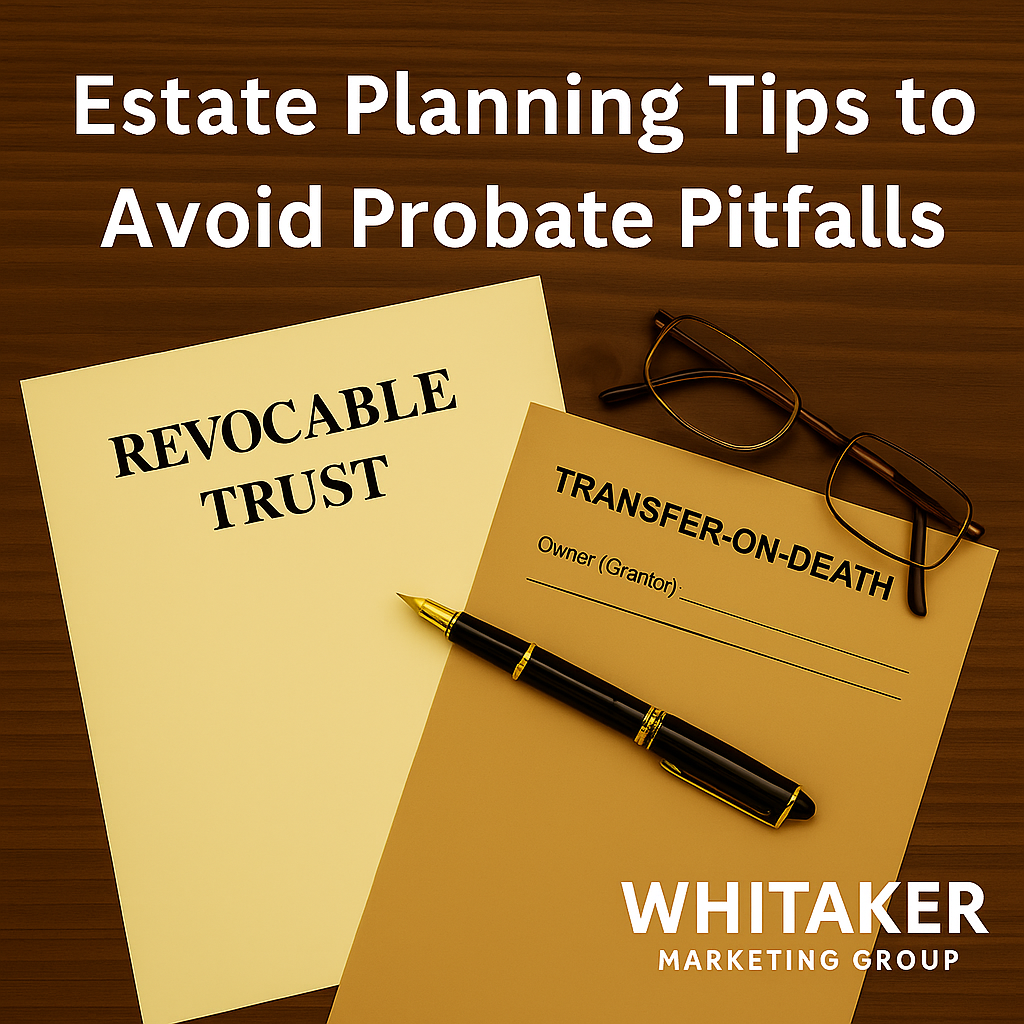When it comes to farmland and real estate, planning ahead is the best way to protect your legacy and ensure a smooth transition for your family. One of the biggest hurdles landowners face is probate—the legal process of validating a will and distributing assets. Without proper planning, probate can be lengthy, costly, and emotionally draining for your loved ones. At Whitaker Marketing Group, we’ve seen how smart estate planning helps clients avoid these pitfalls, saving both time and money while safeguarding family relationships. Below are some key estate planning tips to help you avoid probate pitfalls and maximize the value of your land and assets.
1. Establish a Revocable Living Trust
A revocable living trust is one of the most effective tools to avoid probate. By transferring farmland and other assets into a trust, you retain control during your lifetime while ensuring that your heirs receive the property directly upon your passing—without probate delays. According to Investopedia, trusts provide flexibility and privacy that wills alone cannot.
2. Use Transfer-on-Death Deeds
Many states, including Iowa, allow transfer-on-death (TOD) deeds for real estate. This means you can name a beneficiary to inherit your property automatically, bypassing probate. This tool is especially valuable for farmland owners who want to keep operations running smoothly from one generation to the next. Learn more from the Iowa State Bar Association.
3. Keep Beneficiary Designations Updated
Bank accounts, retirement plans, and life insurance policies often let you name beneficiaries. These designations override instructions in your will, so keeping them current is crucial. Regularly review your accounts—especially after major life events like marriage, divorce, or the birth of a child. For more information, check out the IRS guide on beneficiaries.
4. Co-Ownership Strategies
Owning property with another individual, such as through joint tenancy with right of survivorship, can automatically transfer ownership upon death—avoiding probate. However, it’s important to weigh the tax and legal implications with your advisor before taking this step. Nolo provides a clear overview of how joint ownership affects probate.
5. Work with Professionals Who Understand Farmland
Farmland and agricultural estates carry unique considerations: lease agreements, CSR2 scores, crop income, CRP contracts, and more. Partnering with professionals—attorneys, accountants, and land brokers—who specialize in farmland ensures your estate plan protects both the land and the livelihood it provides. At Whitaker Marketing Group, we work alongside trusted professionals to guide landowners through these important decisions.
Final Thoughts
Estate planning is not just about legal documents—it’s about protecting your family, your land, and your legacy. By using tools like trusts, TOD deeds, and beneficiary designations, you can spare your heirs unnecessary stress and expense. If you’d like to learn more about how your farmland can be structured to maximize value and avoid probate pitfalls, contact Whitaker Marketing Group today. We’ll connect you with the right resources to protect what matters most.
515-996-5263 |✉️info@wmgauction.com